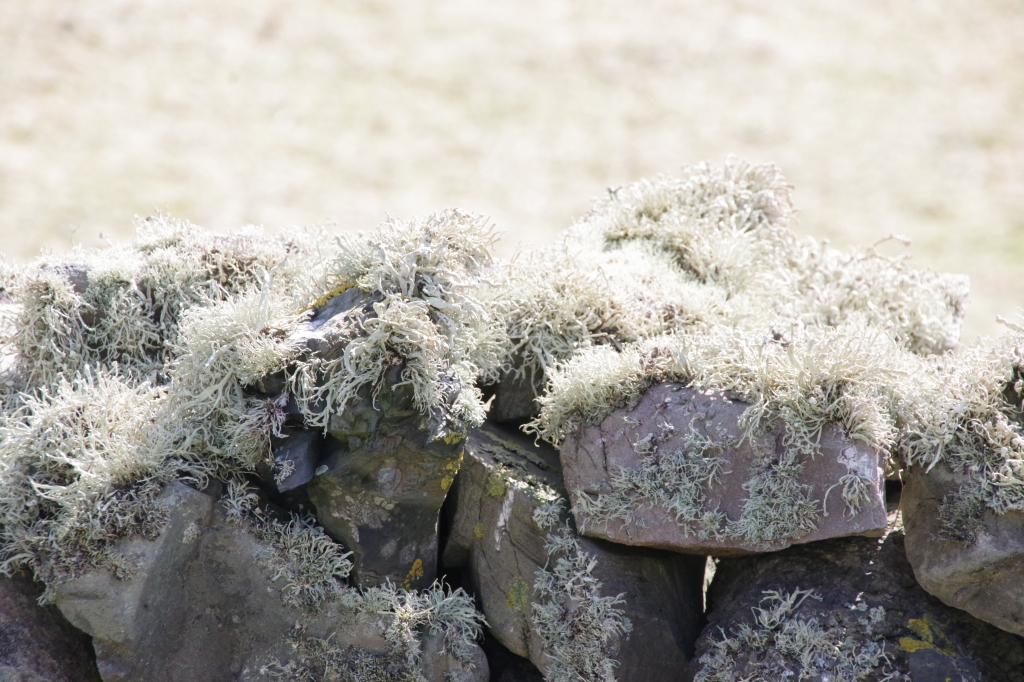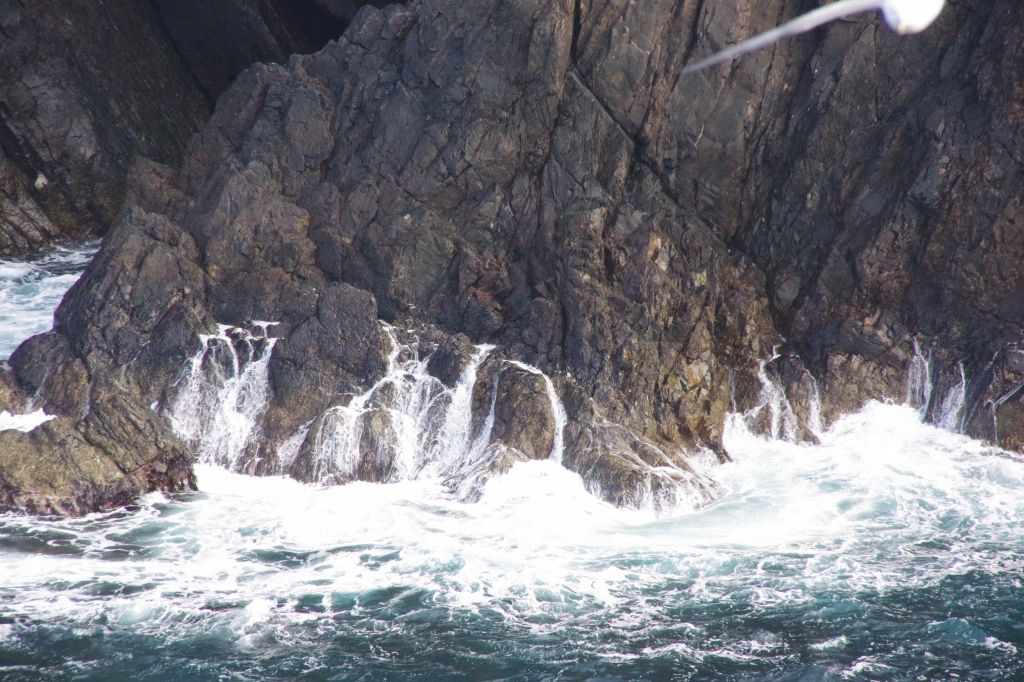
The dichotomy of small islands.
Fairsle is small by any standards- just a few kilometres long, so that you are almost never out of sight of the sea, yet it seems to expand and shrink at the same time.
Perhaps this is because walking it is hard work – long swooping slopes and stomach swirling cliff edges, but it seems more than that, as if the contradiction is spiritual as well as geographical.
In places like this, out on the very edge, we find ourselves thinking small thoughts, like looking down at the carpet of tiny close-packed mosses and grasses that have been flattened to golf-green smoothness by weather and nibbling sheep. We huddle inside our cagoul hoods, wondering just how long it took for a bright orange lichen to spread halfway across a rock.
But then we look out over huge skies and seas. Our eyes finger their way along the ragged cliffs with their huge slabs of ancient sandstone and suddenly we are enlarged again.

So it is also with our thinking.
One moment I am picking up a pebble and wonering if it would make an ideal burnishing stone for pottery, the next I am thinking about what might be done to defend democracy from the mess we have made from it.
One moment I am tending a fire, wondering about the best way to deal with the ashes, the next wondering what can be done about the overconsumption of energy, and what it would take for the rest of us to limit our usage as is normal to the 60 or so folk that live on this island, who have to make their own sparks right here.
One moment I am standing at the graveside of people killed here in the second world war (two lighthouse keepers wives, some german airmen, a british soldier) wondering how a place called ‘peace’ (the name Fairisle being possibly derived from the Norse form Friðarey means literally “calm/peaceful isle” or “island of tranquility), then the next I am thinking about Gaza.

I remember how, years ago, I found something the the writer and theologian Karen Ward said helpful about the difference between ‘small theologies’ and ‘big theologies’.
Big theologies are those worked out over generations within institutional religion. They are constructued in linear progression, with each insight flowing into the next, sometimes through conflict, but mostly by academic study and broad consensus. These kind of theologies are recieved, given to us as absolutes for us to adopt wholy or to reject.
Small theologies are the work of communities. They are developed in conversations around tables and firesides. They are thrashed out over a pint or on long walks. They belong to people only becuase they make sense in a particular context and time.
The strange thing about these two theologies is that they do not (always) cancel one another. Both can exist at the same time. Partly this might be because they concern themselves with different perspectives – one the grand sweep, the other the small fold of ground – but also because it is possible to hold more than one view of something. Theological truth is always more nuanced than that – in my experience at least.
Absolutism is for facebook, not friendship.

I was thinking today about whether this dichotomy also existed within our experience of spirituality more generally.
Is this the same thing as theology? I don’t thing so.
When I use the word spiritual, I am trying to describe something that has no measurable shape. It has feeling though – the mystical, mysterious, pit-of-the-stomach, hairs-on-the-back-of-the-neck kind.
It is not experince itself, but what the experience means.
It is not meaning itself, but it is the illumination of meaning.
Big spirituality is like the big wide sea, the wide star strewn sky. It is immersive, transformative and catches us up in the chaos of trauma and grief. Big spirituality is a kick to the soul, right where the pain given is greatest. It is a small child rolling down a long grassy slope, right where the joy is most chaotic. These experiences are rare – thankfully so, because who can take this kind of spirit every day?
Small spirituality is like a bunting in the corner of your vision, flitting in and out of a reed bed. It is a quickening in a gust of wind. It is a prick behind the eye at a small act of kindness. It is a line of poetry or a seedling. It is a dog at your heel or the sound of a crashing wave in the far distance.

